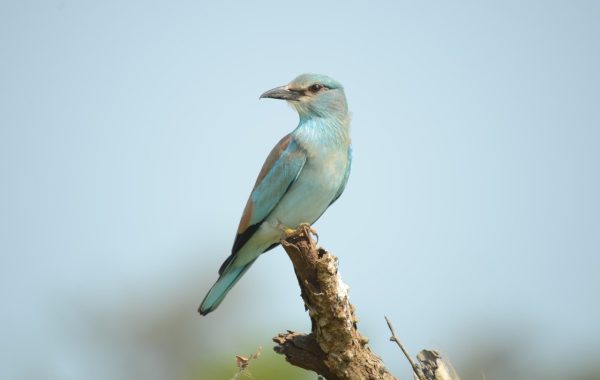As new information arises, new threats to birds are identified and conservation actions are evaluated, BirdLife International scientists assess the conservation status of the world’s birds every year for The IUCN Red List of Threatened Species™. According to the latest update of the Red List for birds, overfishing and climate change are pushing seabirds closer to extinction, while a formerly super-abundant songbird could soon go extinct if illegal trapping is not halted.
Overfishing and ocean changes caused by climate change have affected the availability and quality of the Black-legged Kittiwake’s key prey species, like sandeel. Without sufficient food, kittiwake colonies in the North Atlantic and Pacific are struggling to feed their chicks, causing disastrous chick survival in recent years. For the adults, exposure to other threats at sea such as bycatch in fishing gear, pollution, and unsustainable hunting all have contributed to the dramatic declines of this seabird. Globally, the species is thought to have declined by around 40% since the 1970s, justifying its uplisting to Vulnerable.
According to Marguerite Tarzia, European Marine Conservation Officer at BirdLife International, “The alarming decline of the Black-legged Kittiwake and other North Atlantic and Arctic seabirds, such as Atlantic Puffin, provides a painful lesson in what happens when nations take an ‘out of sight, out of mind’ approach to conservation.” In Cyprus, little is known about the scale and the scope of the problems that seabirds face, but with the expert coordination of BirdLife Europe and together with other NGOs in Cyprus, BirdLife Cyprus will be involved in setting up a Cyprus ‘Task Force’ in 2018 to begin to tackle these issues and in particular that of incidental bycatch in fisheries.

Once super-abundant, Yellow-breasted Bunting has suffered frightening declines due to large-scale unchecked hunting (mainly for food). Sights of huge migrating flocks of this attractive songbird could soon be a thing of the past in Asia, paralleling scenes from North America in the 1800s of billion-strong flocks of Passenger Pigeon before they were hunted to extinction. The Yellow-breasted Bunting is now thought to have declined by more than 80% since 2002, and this year is uplisted to the highest threat category, Critically Endangered. Improvements in communication and transportation have exacerbated the hunting problem, a practice made illegal in China in 1997, but which continues on the black market today.
Apologists for illegal trapping of songbirds in Cyprus often cite the fact that Blackcap, the main target species, is not threatened, as a justification for their calls to decriminalise the practice. The fate of the Yellow-breasted Bunting demonstrates that no matter how common a species is, indiscriminate and unsustainable killing can have disastrous effects.
Happily, there is also hopeful news in the 2017 Red List of birds, with Dalmatian Pelicans in Europe recovering thanks to artificial nesting rafts and disturbance prevention; and in New Zealand, where two species of kiwi are now less threatened thanks to dedicated control of introduced predators, egg-rearing and community work.
According to Dr Ian Burfield, Global Science Coordinator at BirdLife International, “Birds are well-studied and great indicators of the health of the wider environment. A species at higher risk of extinction is a worrying alarm call that action needs to be taken now. Thankfully success in kiwi and pelican conservation shows that, when well-resourced and supported, conservation efforts really do pay off.”
You can find out more information about the 2017 IUCN Red List for birds on the BirdLife International website: http://www.birdlife.org/news/tag/red-list-2017




